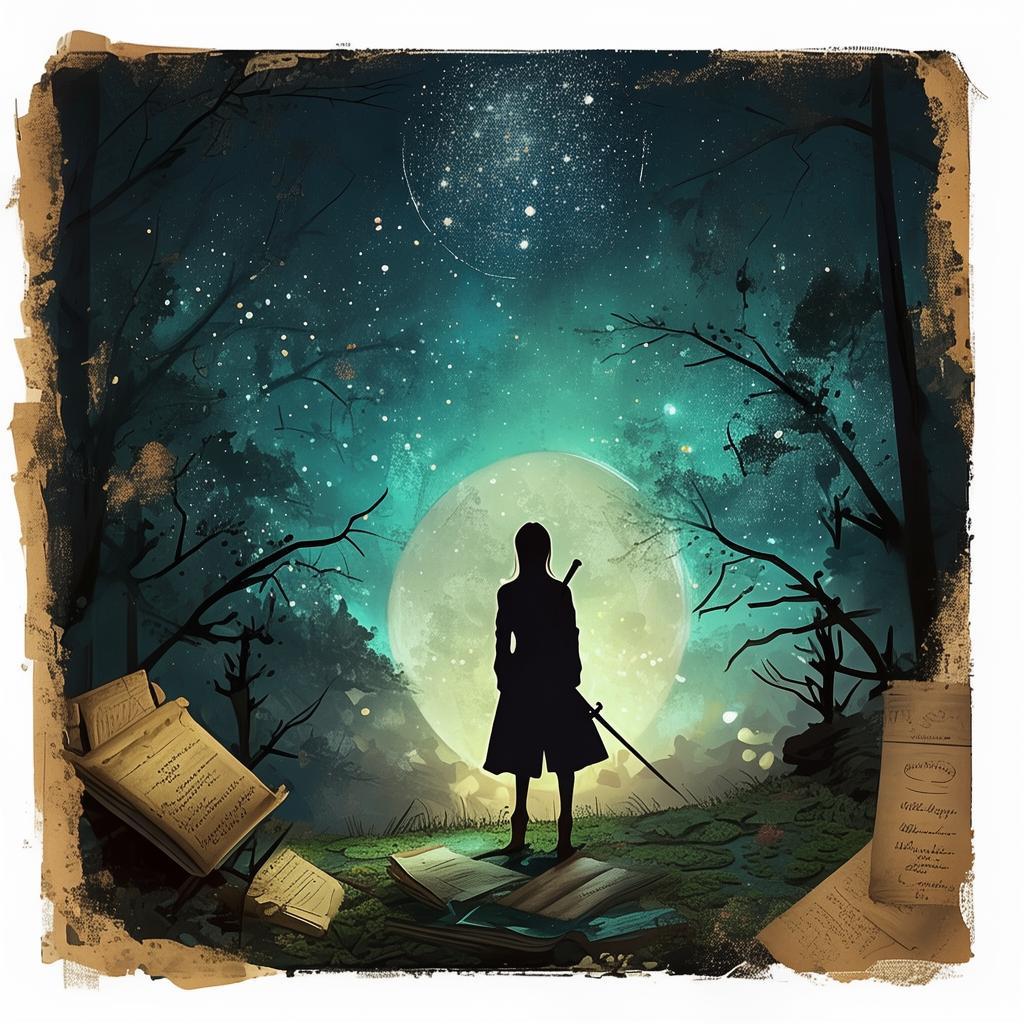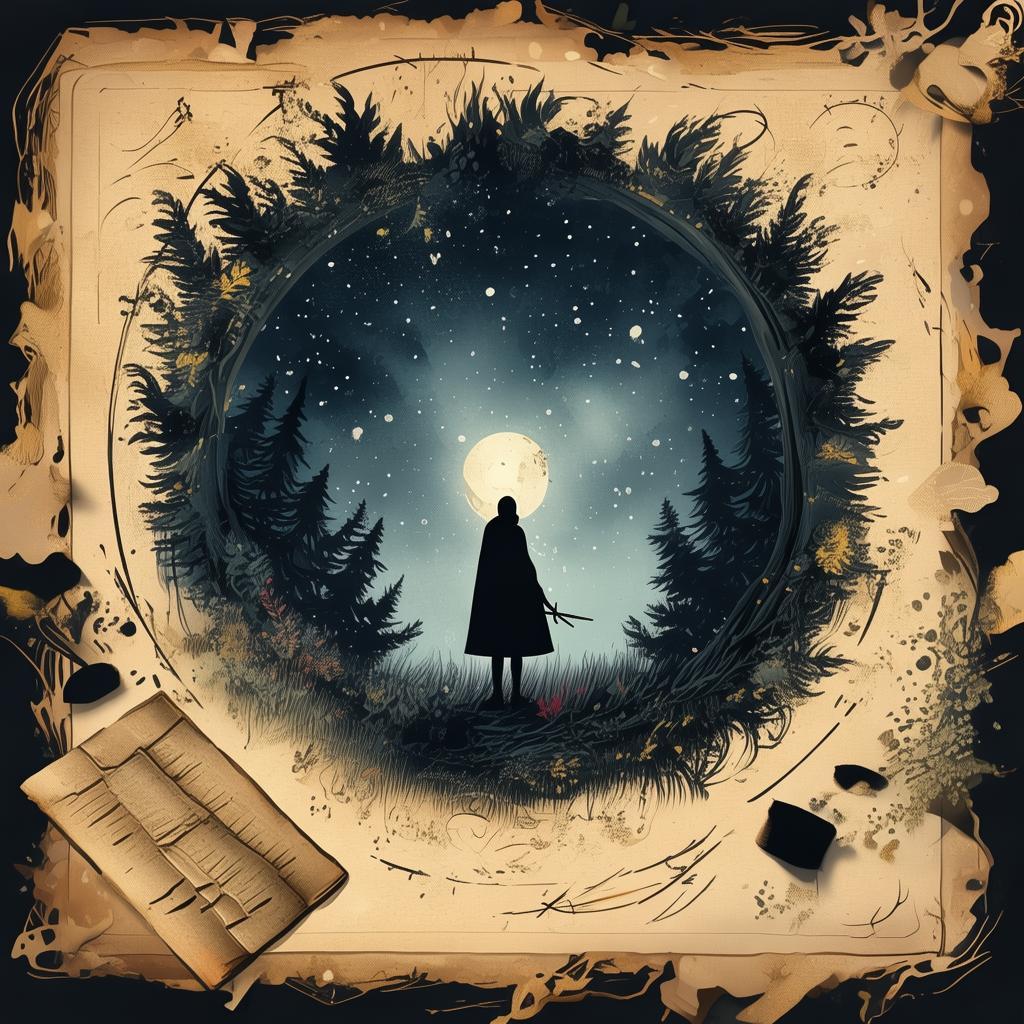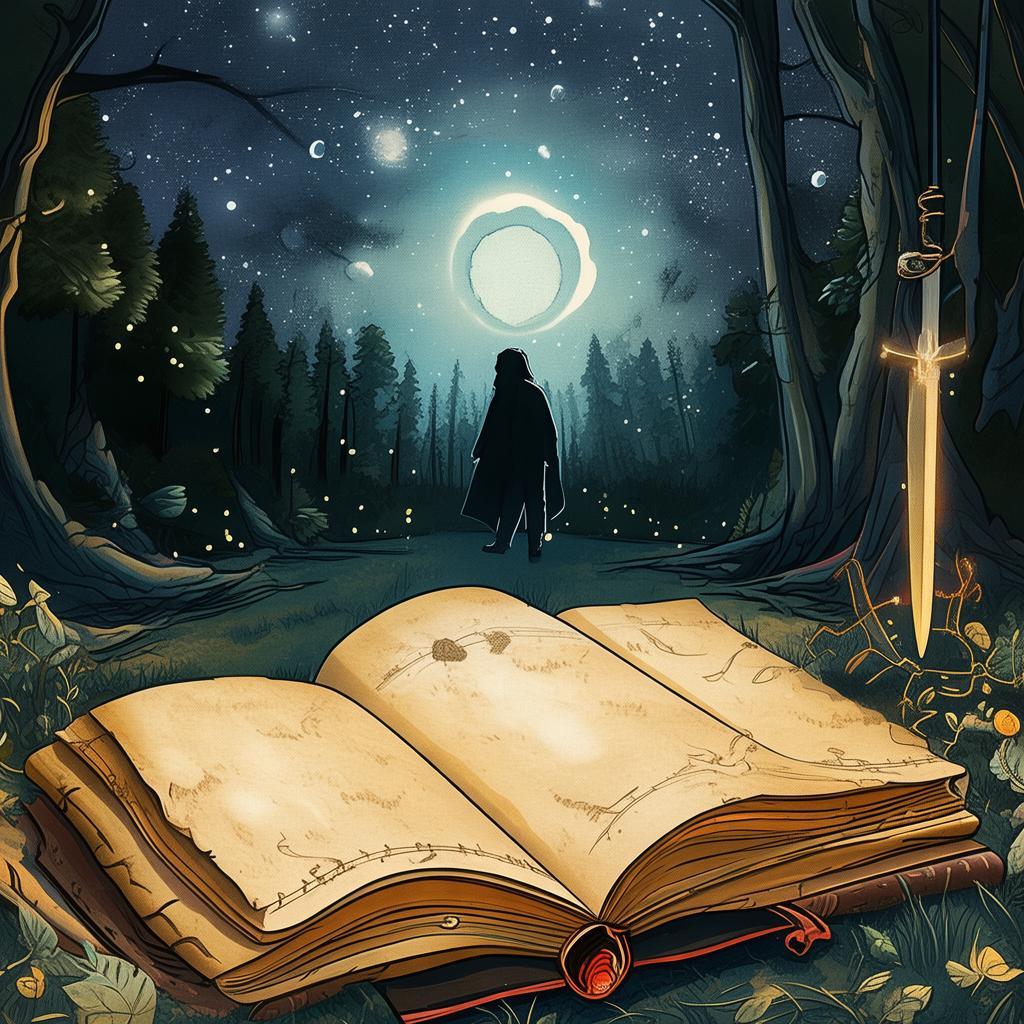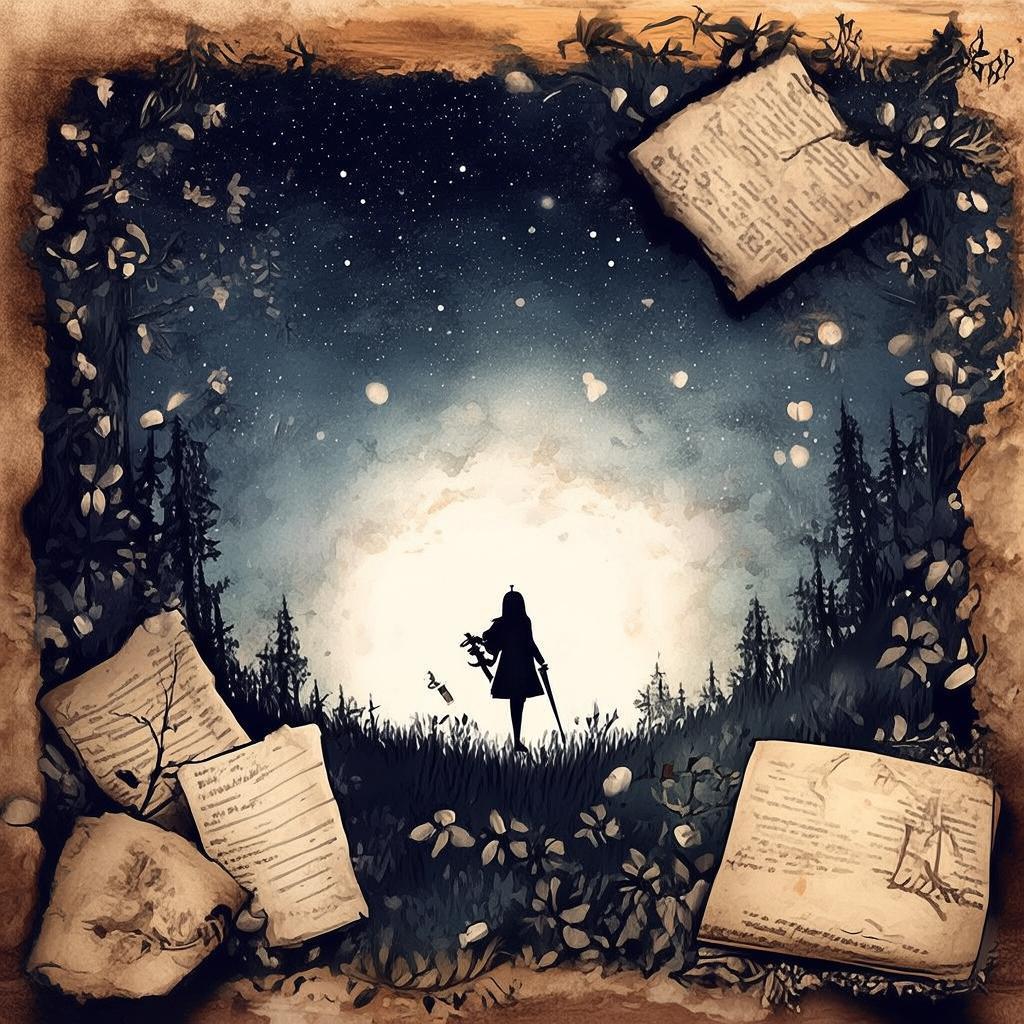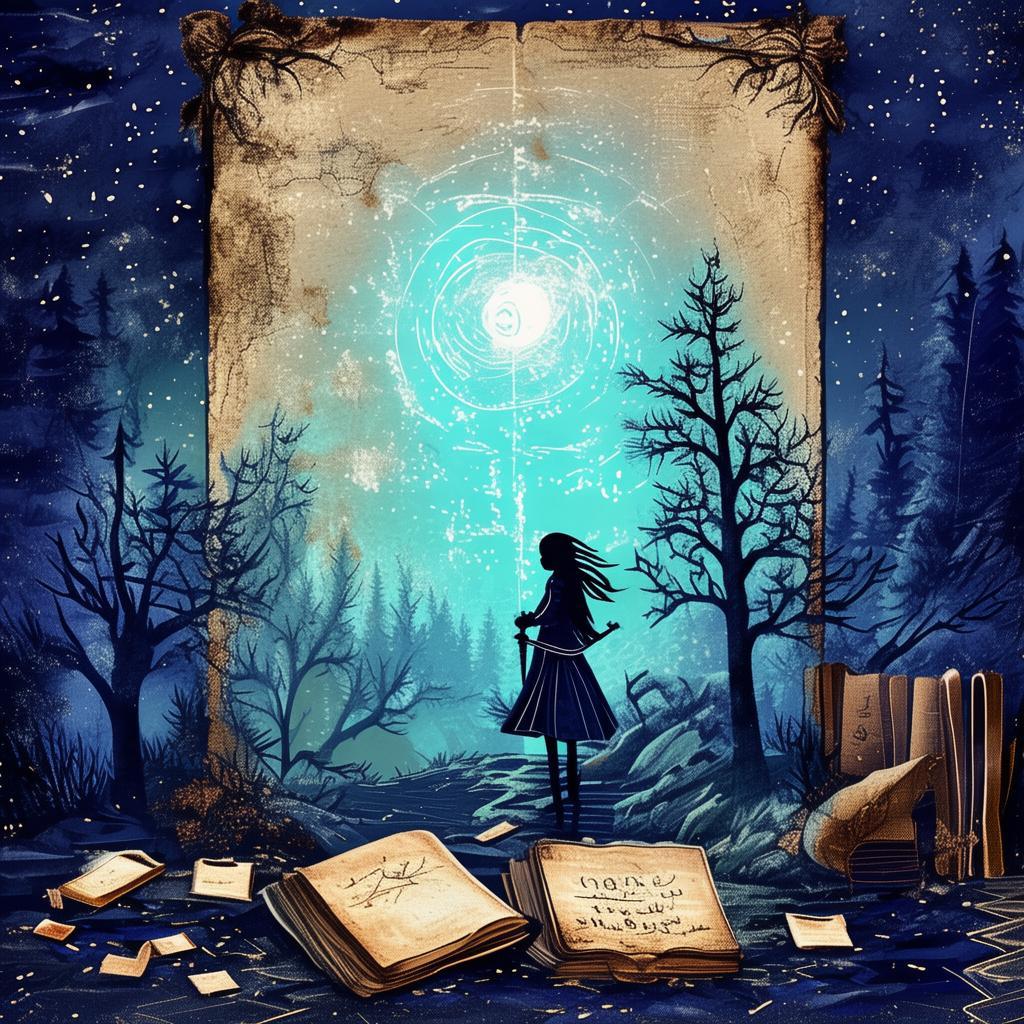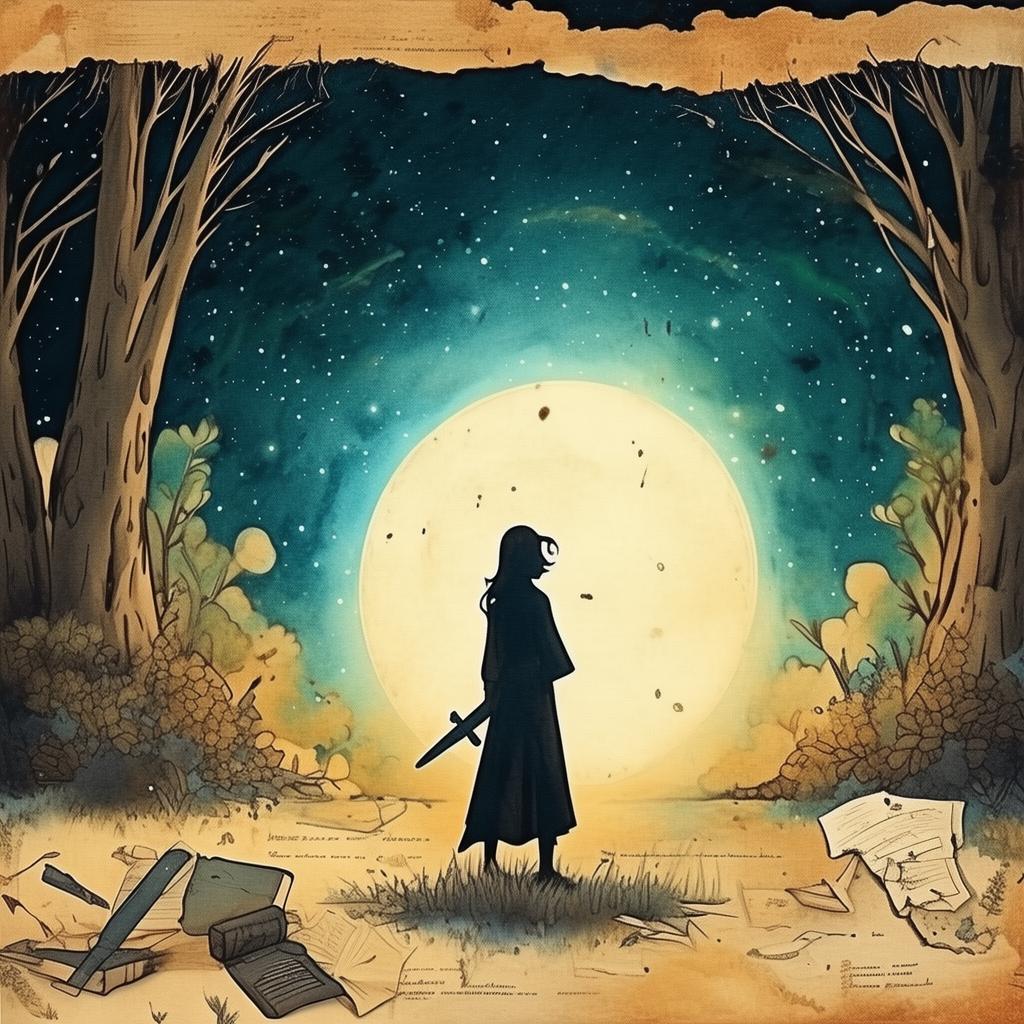The Lament of the Last Serenade
In the ancient kingdom of Elysium, the baron, known for his hauntingly beautiful serenades, was a figure of legend. His melodies had the power to soothe the restless souls of the departed, but it was his last serenade that would seal his fate. As the final notes faded into the night, the baron felt a chill in his bones, a premonition that he would soon follow his melodies to the afterlife.
The night of the last serenade was a somber one. The baron, dressed in his finest, stood on the balcony of his grand estate, overlooking the sprawling kingdom. The moon was full, casting a silver glow over the land. He played his lute, the strings resonating with a melody that seemed to carry a message of farewell. As the final note echoed through the night, the baron felt a sudden jolt, as if the melody had reached beyond the veil of life and death.
The next morning, the baron awoke to find himself in a strange, ethereal realm. The landscape was surreal, with towering mountains that seemed to touch the sky and rivers that sparkled with a light not of this world. The baron, disoriented and frightened, realized that he was indeed in the afterlife, the realm of the departed.
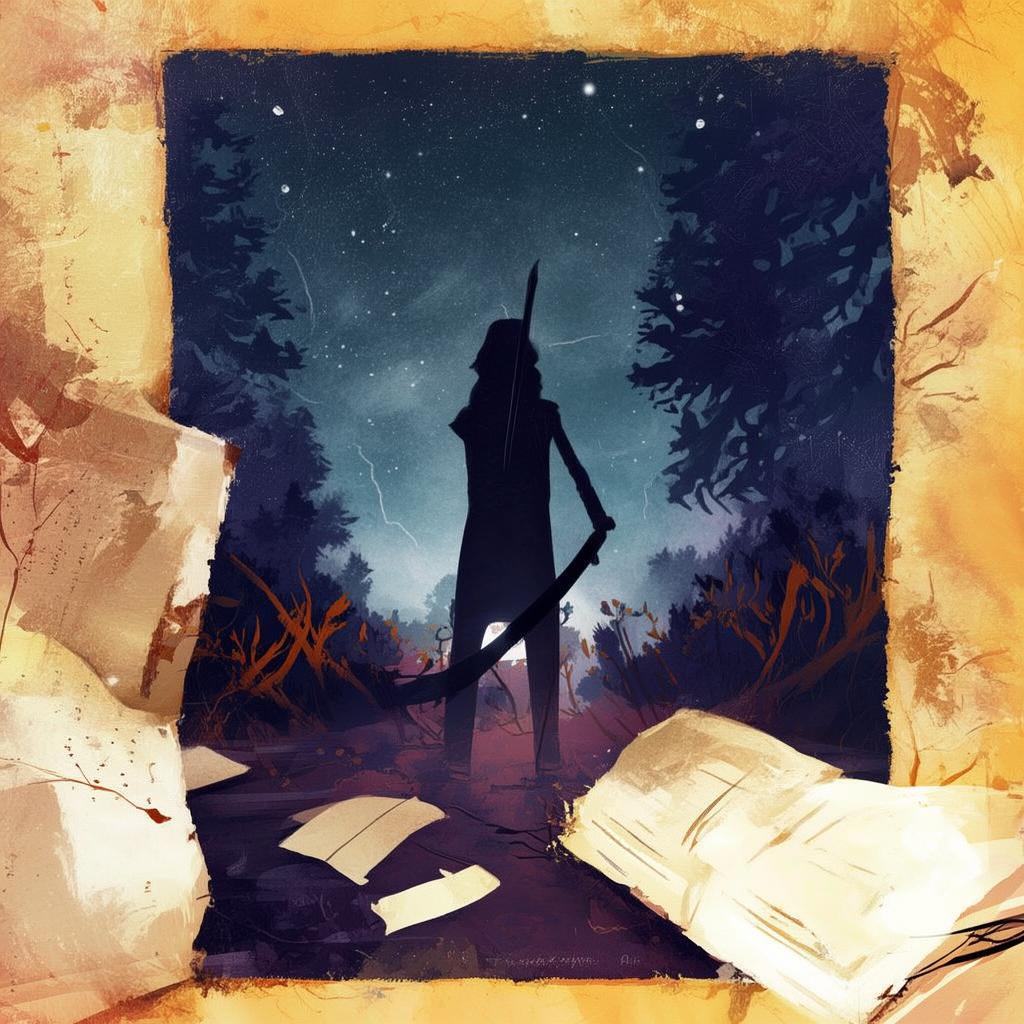
He wandered through this strange land, encountering spirits of the departed, each with their own stories and regrets. Some were joyful, others were sorrowful, but all were bound by the common thread of their final moments. The baron, feeling a deep connection to these spirits, decided to help them find peace, to help them let go of their past and move on to the next life.
As he journeyed through the afterlife, the baron encountered a mysterious figure known as the Lamentor. The Lamentor was a guardian of the afterlife, tasked with ensuring that the spirits were at peace. The Lamentor revealed to the baron that his last serenade had not only reached the realm of the departed but had also awakened a dormant power within him—a power that could change the very fabric of the afterlife.
The baron, now determined to help the spirits find peace, set out on a quest to find the source of this power. His journey took him through the darkest corners of the afterlife, where he faced trials and tribulations that tested his resolve and his heart. Along the way, he encountered spirits who had been trapped in cycles of pain and sorrow, unable to move on.
One such spirit was a young woman named Elara, whose last moments were filled with despair. She had been betrayed by her love, left to die alone. The baron, moved by her story, decided to help her break the cycle of her sorrow. Through his serenade and the power he had awakened, he was able to release her from her tormented existence, allowing her to move on to the next life.
As the baron continued his journey, he discovered that the Lamentor was not the guardian he had believed him to be. The Lamentor was, in fact, a corrupted spirit, using the power of the baron's serenade to maintain control over the afterlife. The baron, now aware of the Lamentor's true nature, knew he had to stop him before he could cause further harm.
The climax of the story occurred in a grand chamber, where the baron and the Lamentor clashed in a battle of wills and melodies. The chamber was filled with spirits, who watched in awe as the baron's serenade clashed with the Lamentor's corrupted power. The baron, using the power of his love and the spirits' collective will, managed to overpower the Lamentor and restore balance to the afterlife.
With the Lamentor defeated, the baron returned to the realm of the living, his journey complete. He realized that his last serenade had not only brought him to the afterlife but had also given him the power to change it. The baron returned to his kingdom, his melodies now more powerful than ever, as he dedicated his life to helping others find peace, both in life and in death.
The Lament of the Last Serenade is a story of love, loss, and redemption, where the power of music transcends the boundaries of life and death. It is a tale that resonates deeply, leaving readers with a sense of hope and the belief that even in the face of darkness, there is always light.
✨ Original Statement ✨
All articles published on this website (including but not limited to text, images, videos, and other content) are original or authorized for reposting and are protected by relevant laws. Without the explicit written permission of this website, no individual or organization may copy, modify, repost, or use the content for commercial purposes.
If you need to quote or cooperate, please contact this site for authorization. We reserve the right to pursue legal responsibility for any unauthorized use.
Hereby declared.
